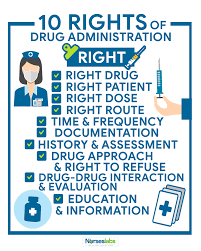A nurse is caring for a client who has active tuberculosis (TB). Which of the following actions should the nurse plan to take to prevent the transmission of the disease?
Initiate contact precautions for the client upon admission.
Restrict visitors from entering the client's room during hospitalization.
Wear a surgical mask while providing care for the client.
Have the client wear a surgical mask while being transported outside the room.
The Correct Answer is D
A. Initiate contact precautions for the client upon admission. This is incorrect because contact precautions are not sufficient to prevent the spread of TB, which is an airborne disease that can travel through small droplets in the air.
B. Restrict visitors from entering the client's room during hospitalization. This is incorrect because visitors can enter the client's room as long as they wear appropriate personal protective equipment (PPE) such as an N95 respirator, gown, gloves, and eye protection.
C. Wear a surgical mask while providing care for the client. This is incorrect because a surgical mask does not filter out small airborne particles that carry TB bacteria. The nurse should wear an N95 respirator or higher level of respiratory protection when caring for a client who has active TB.
D. Have the client wear a surgical mask while being transported outside the room. This is correct because a surgical mask can reduce the amount of droplets that are expelled by the client when coughing or sneezing, thus minimizing the risk of infecting others in common areas or hallways.
Nursing Test Bank
Naxlex Comprehensive Predictor Exams
Related Questions
Correct Answer is B
Explanation
A is incorrect because the completion of the incident report should not be documented in the client's medical record, but in a separate file for quality improvement purposes.
B is correct because the time the medication was given is an essential fact related to the incident that should be documented in the client's medical record.
C is incorrect because the reason for the medication error should not be documented in the client's medical record, but in the incident report for analysis and prevention of future errors.
D is incorrect because the notification of the pharmacist should not be documented in the client's medical record, but in the incident report for follow-up and corrective actions.

Correct Answer is A
Explanation
Correct answer: A. Have the child take a tub bath each morning
A. Have the child take a tub bath each morning: Warm tub baths are recommended for children with juvenile idiopathic arthritis (JIA) as they help to relieve joint stiffness and pain, especially in the morning. The warm water can soothe the joints, making movement easier and reducing discomfort throughout the day.
B. Apply splints to the child's extremities during the day: While splints may be used in JIA, they are typically applied during the night (resting splints) to maintain joint position and prevent contractures. Daytime use of splints (working splints) may be considered in certain situations, but generally, children are encouraged to be as active as possible during the day to maintain joint mobility.
C. Encourage the child to take naps during the day: While rest is important, encouraging too much rest during the day may contribute to joint stiffness. Regular activity helps maintain joint function and mobility, which is essential in managing JIA.
D. Keep the child on bedrest as long as pain persists: Prolonged bedrest is not recommended for children with JIA. It can lead to muscle atrophy, increased stiffness, and reduced joint mobility. Instead, the focus should be on maintaining activity within the child's pain tolerance and using pain management strategies.
Whether you are a student looking to ace your exams or a practicing nurse seeking to enhance your expertise , our nursing education contents will empower you with the confidence and competence to make a difference in the lives of patients and become a respected leader in the healthcare field.
Visit Naxlex, invest in your future and unlock endless possibilities with our unparalleled nursing education contents today
Report Wrong Answer on the Current Question
Do you disagree with the answer? If yes, what is your expected answer? Explain.
Kindly be descriptive with the issue you are facing.
